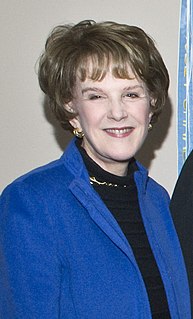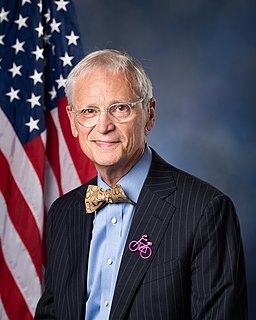A Quote by John Barrasso
Russia's actions in Syria are not the only reasons to distrust Mr. Putin. Moscow has opposed attempts by the U.N. in November 2011 to increase sanctions against Iran for its illicit nuclear program.
Related Quotes
The issue has two dimensions. One is the legal dimension and the other one is the issue at the realpolitik. [In the] legal realm, we believe in equal rights for all people in all nations. If Israel, the United States, Russia, Pakistan, other countries, China, have the right to have a nuclear program and nuclear bomb, Iran, too, must have that same right. Now, at the realm of realpolitik, because there is a global consensus against Iran, and because there are all manner of dangers facing Iran, I am opposed to this program.
Sanctions did indeed help to bring Iran to the negotiating table. But sanctions did not stop the advance of Iran's nuclear program. Negotiations have done that, and it is in our interest not to deny ourselves the chance to achieve a long-term, comprehensive solution that would deny Iran a nuclear weapon.
Israel's discourse with the United States on the subject of Iran's nuclear project is more significant, and more fraught, than it is with Europe. The U.S. has made efforts to stiffen sanctions against Iran and to mobilize countries like Russia and China to apply sanctions in exchange for substantial American concessions.
People take the lazy way out, and do not regard Putin and the Kremlin as the real enemy. They create a long but erroneous chain in their heads. Putin is the leader of Russia. Putin does X, therefore Russia is doing X, and Russia is our enemy. And so, we introduce sanctions, for example, against Russia.
I think Hillary Clinton is more suspicious, clearly tougher on Russian policy in Ukraine, Georgia, Syria; more willing to support sanctions; not against negotiating with Putin, but I would say tougher and more skeptical. And Donald Trump has talked about revisiting policy towards Ukraine, revisiting policy about sanctions towards Russia, not as quick to criticize Putin for what he might be up to in Syria and propping up the regime there - so just seems to be more open to the possibilities of working out some kind of a - I guess you'd call a modus vivendi with Putin.
US opposition to Russia and China has entailed sanctions against Russia, and Russia in turn has made counter-sanctions against Europe. So Europe is essentially sacrificing its opportunities for trade and investment in order to remain part of NATO. It is also agreeing to bomb Syria and the Near East, creating a wave of refugees that it doesn't know what to do with.
Just recently, President Donald Trump said that he believes that Mr. Vladimir Putin, when he said he didn't know about interfering in our elections - or he thought he was sincere. Quite frankly, Russia intentionally interfered in our election, and Mr. Putin was behind that. And the new sanctions need to be imposed.
Tillerson, at ExxonMobil, brokered multibillion-dollar deals with Russia, meeting with Putin multiple times. In 2013, he received the Order of Friendship award from Putin himself. But Tillerson today said he'd support continuing sanctions against Russia for now. He also implied his intimate knowledge of Russia meant he understood its strategy, and could anticipate its moves, to America's benefit.
The Europeans are starting to show that they're finally serious about the Iranian nuclear program, and they appear to be willing to use sticks against Iran. So I think it is imperative that the United States sit down with the Europeans and say, "Let's make this very clear to the Iranians. Either they can give up their nuclear program and their support for terrorism, in which case we'll given them all kinds of benefits. Otherwise, we'll join in comprehensive, multilateral sanctions that will cripple their very fragile economy."
































